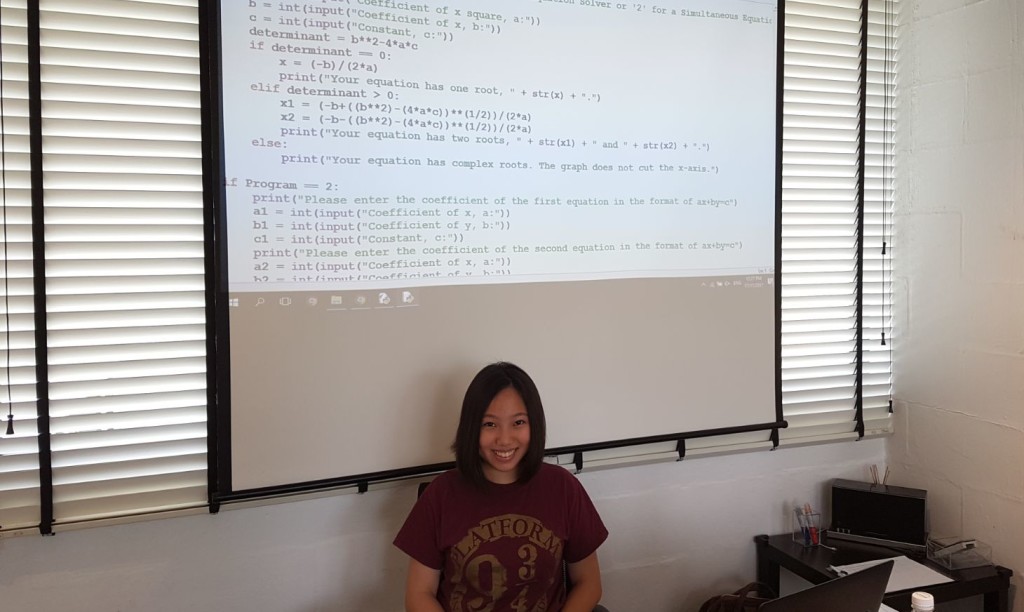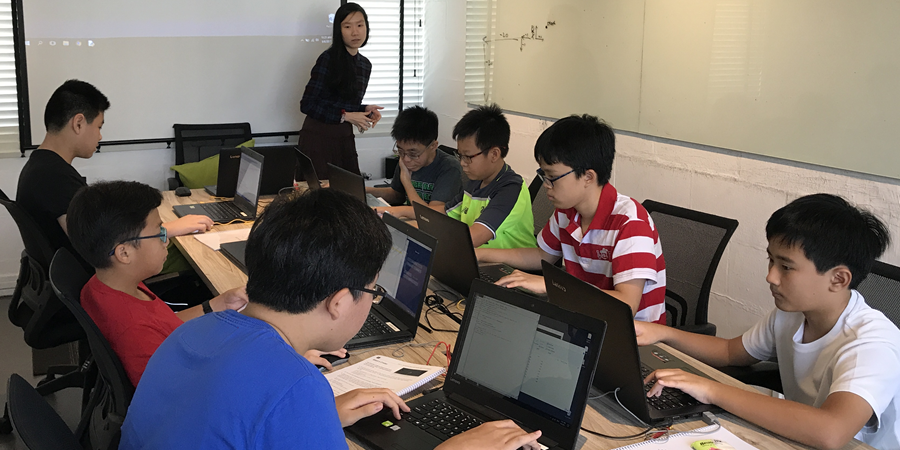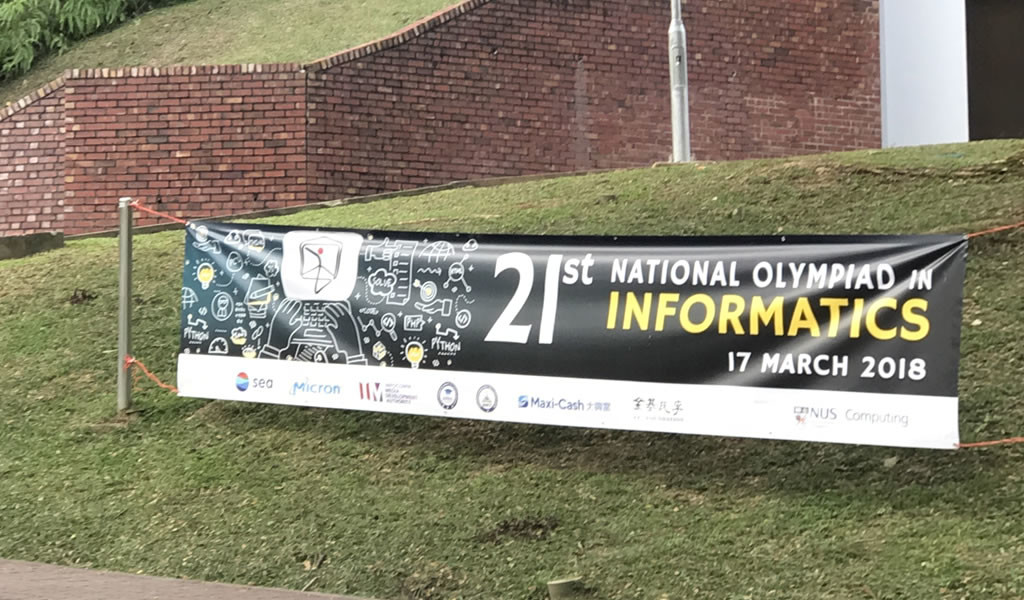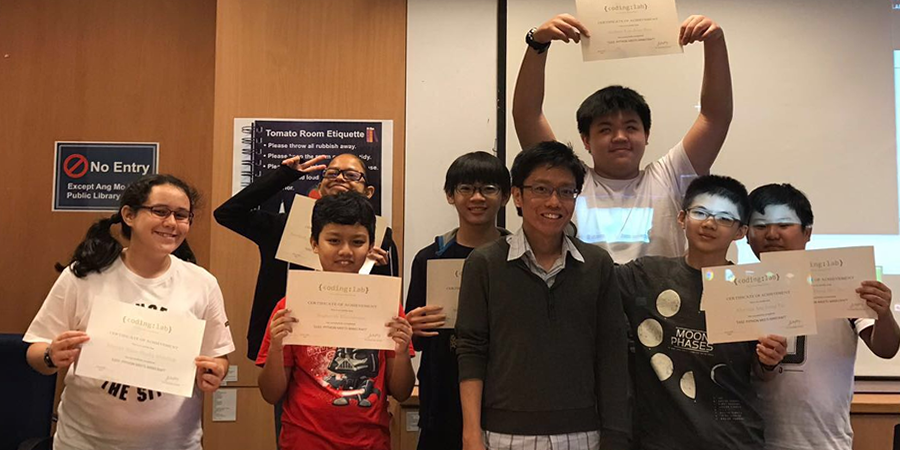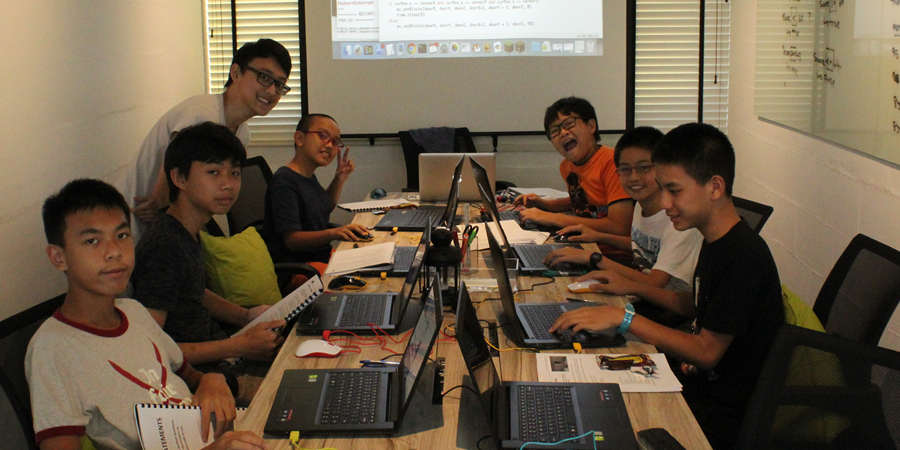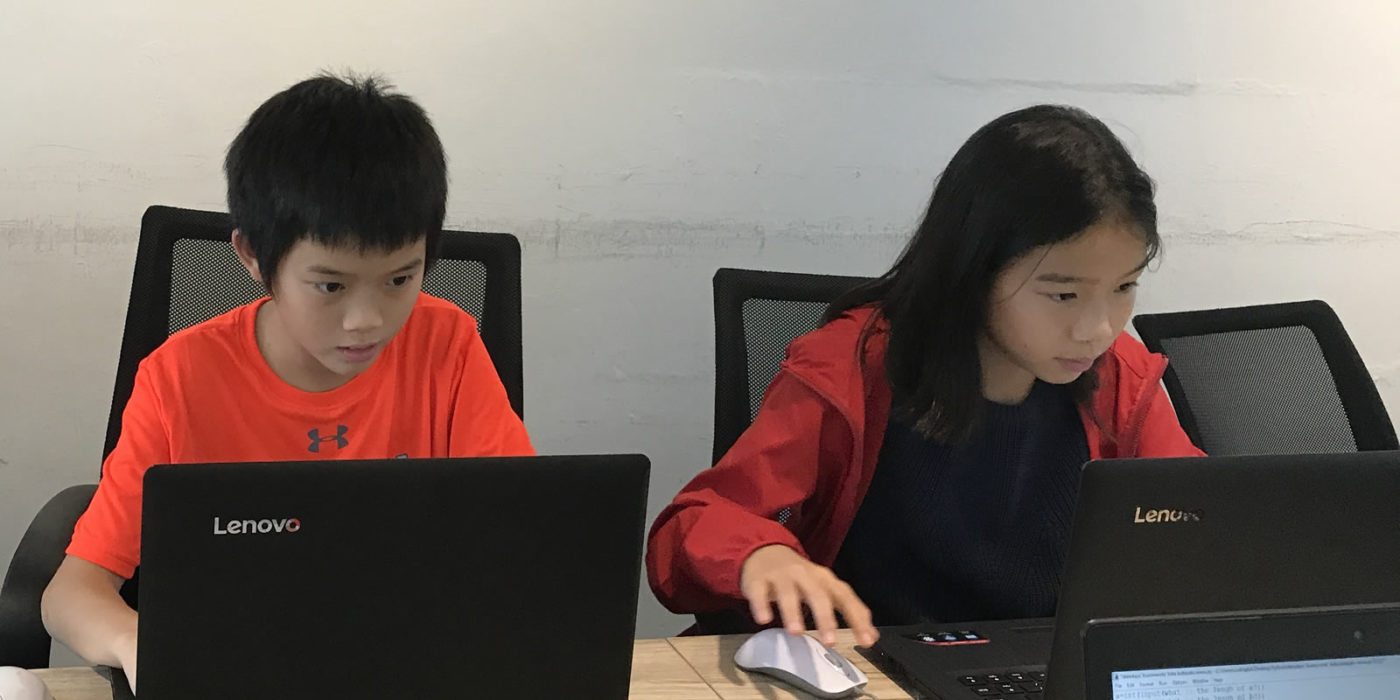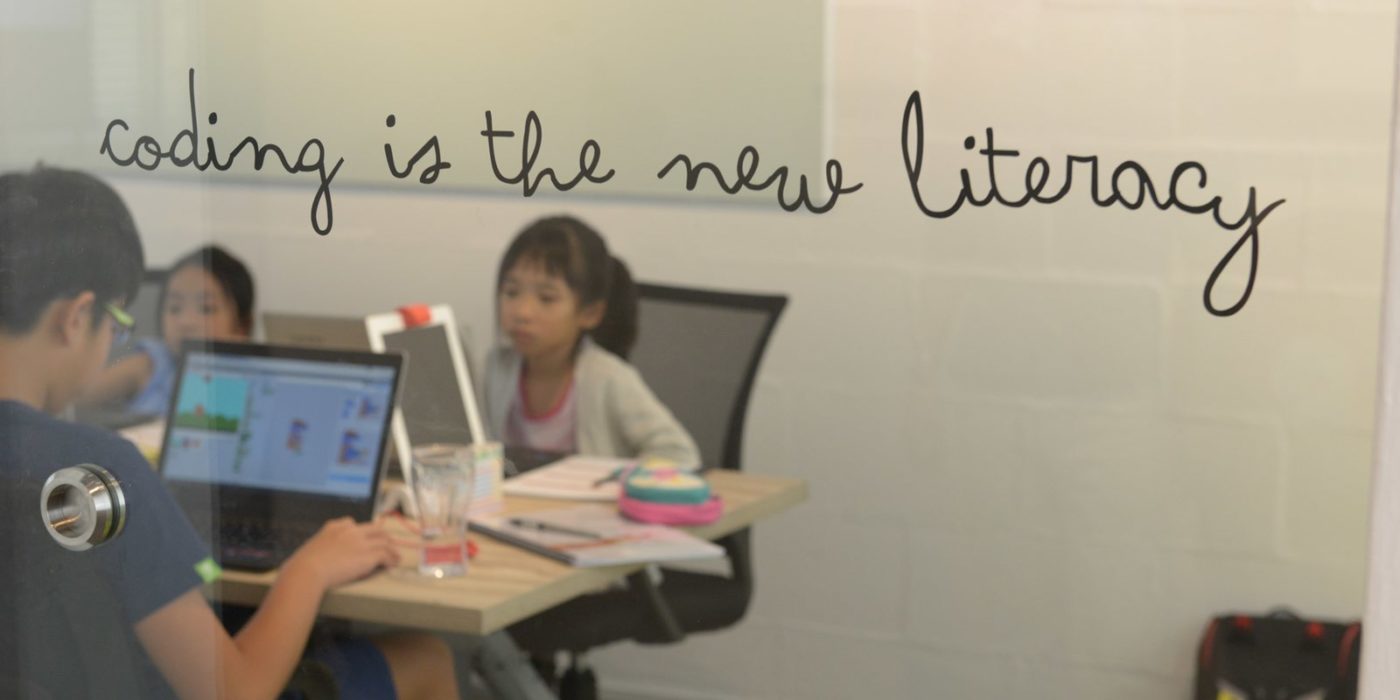Essentia Care Pty Ltd, incorporated in Australia and having its registered address at 1/11-15 Leicester Avenue, Glen Waverley VIC 3150 owns and operates the trade name Coding Studio and the Coding Studio web portal where visitors of the portal are able to sign up for educational programs run by Coding Studio. The terms “we”, “us” and “our” refer to Coding Studio while the term “you” refers to the students enrolled, parents of students enrolled, visitors or registered members of the web portal.
By enrolling in programs offered through Coding Studio, accessing and/or using the Website, you agree to be bound by the Terms and Conditions.
Program Arrangement
We reserve the right to make any changes to the program including curriculum, class size, class time, number of classes. This may be to the customer’s advantage or disadvantage.
We do not offer any make-up classes or refunds for missed classes. Any such arrangement is at the discretion of Coding Studio.
In the event of instructor absence or unavailability of venue, Coding Studio will notify the student of any class rescheduling.
Payment
When you make payment through the portal, this payment is processed by a third party by means of a secured payment gateway.
Payment is non-refundable after a booking has been made and/or confirmed. At any time, and for any reason, we may provide either a full or partial refund and the decision for refund is at our sole and absolute discretion.
Refunds
We do not provide refunds of course fees, except in the event that the student’s application for enrollment is not accepted, course applied is canceled, or class withdrawals.
In the event that Coding Studio offers a revised arrangement for cancelled courses, students have the right to decline the arrangements offered and choose to receive a refund on a pro-rata basis of the course fee collected as soon as possible and in any event no later than one month after the notification date of the course cancellation.
We will inform the parent/student of refund arrangements either by phone or in writing (e-mail).
Customers must fill in their refund details provided by Coding Studio by email. No refunds can be made without the necessary details containing all indicated information.
We will issue a refund receipt to the parent/student and parent/student are required to sign to acknowledge receipt of the refunded payment.
We reserve the right to change the price and offer promotions at any time to respond to the market. No refund for any promotion codes missed. Also, promotion codes cannot be used in conjunction with each other.
Semi-Private/Private Courses
Missed lesson(s) by the student are non-refundable and non-transferable. It is the parent’s/student’s responsibility to contact us to schedule lessons and notify Coding Lab of any rescheduling.
In the event of tutor absence, the tutor will notify parent/student of lesson rescheduling or we will notify parent/student as soon as we are notified by the tutor. Other than rescheduling lesson due to illness, the tutor will provide 48 hours’ notice or will reschedule the lesson. If the lesson cannot be rescheduled, the missed lesson will not be charged.
Confidentiality
Parents/students agree not to reproduce, distribute or show to any other person, in whole or in part, any of the class materials, lesson notes, assessments and tests distributed by us without the prior written consent of Coding Studio.
Non-Solicit
Parents/students are not permitted to solicit or make private arrangements for tuition with instructors/tutors employed by Coding Studio.
Photography and Film Material
By accepting our terms and conditions, the participant accepts that Coding Studio freely can use all photography, film and sound material that has been created by us and/or our staff during the program, without asking further approval from the participant. Coding Studio reserves all rights to images and footages.
We reserve the right to use the applicant/student’s work for promotional or educational purposes.
The consent regarding photography and film material may be withdrawn at any time with written notice to Coding Studio.
Safety
Parents and guardians are solely responsible for the safety of the students before and after class.
Parents are responsible to arrange appropriate transportation or pick-up for students to and from class venue. We do not require students to sign-out or notify us when they are leaving the premises.
In case of serious accidents when immediate medical care is required, children will be sent to the nearest hospital. By accepting our terms and conditions, you have given us your consent for us to do so.
Coding Studio will take reasonable steps to ensure the safety of our students. By signing up for classes with us, you hereby release, indemnify, and hold harmless Coding Studio, and its agents, employees, board of directors, and volunteers from any and all liabilities, claims, loss, costs or expense arising out of, or resulting directly or indirectly from my child’s participation in the Program, including, but not limited to that arising from damage to personal property, personal injury to your child/dependent, or his/her mental trauma or death, notwithstanding any negligence or contributory negligence on the part of Coding Studio, its agents, employees, board of directors, or volunteers.
Prohibited Activities
Unless otherwise noted, all contents and materials on the portal including but not limited to designs, text, graphics, icons, information, source code or software are the exclusive property of Coding Studio. Therefore, you agree not to reproduce, modify, re-sell, publicly display, distribute, publish, transfer or transmit in any manner the contents of this Site without the prior written consent of Coding Studio.
You agree that you will not use automation software (bots), hacks, mods or any other unauthorized third-party software designed to access, crawl or collect from services offered through the portal and/or Third Party Data and Services.
You agree not to upload, post, email, or otherwise publish through this Site any Content:
that is unlawful, harmful, threatening, abusive, harassing, defamatory, libelous, invasive of another’s privacy, or is harmful in any way;
that is false, deceptive, misleading, deceitful or mis-informative
that includes personal or identifying information about another person without that person’s explicit consent;
that infringes any patent, trademark, trade secret, copyright or other proprietary rights of any party, or Content that you do not have a right to make available under any law or under contractual or fiduciary relationships;
that contains software viruses or any other computer code, files or programs designed to interrupt, destroy or limit the functionality of any computer software or hardware or telecommunications equipment;
Intellectual Property Rights
The trademarks, pictures, illustrates and logos displayed on the portal are the registered and unregistered trademarks of their respective owners. Use of the trademarks displayed is strictly prohibited. No right or license is given to you or any other party accessing the Website to download, reproduce or use any of such material.
Personal Data
You agree that any personal data including but not limited to name, NRIC number, address, telephone number or email address transmitted through the portal will be collected, used and/or disclosed in accordance with our Privacy Policy.
Registration
To access certain information and services, you will be required to register and sign up for an account with us. You are solely responsible for safeguarding and maintaining the confidentiality of your username and password.
E-mail Notifications
By registering and/or using the portal for booking of educational programs, you agree to receive email notification(s) which we may send you in relation to your booking such as transaction details, providing you with certain information and offers relevant to your interests and proximity to your registered address, and emails which we may send to you after you have participated in the educational program, inviting you to share feedback and reviews.
Indemnification
You agree to fully indemnify, defend and hold us, and our officers, directors, employees, agents and suppliers, harmless immediately on demand from and against all claims, liability, damages, losses, fines, penalties, costs and expenses of any kind or nature including but not limited to reasonable legal and accounting fees, brought by third parties as a result of:
Your breach of this Agreement;
your violation of any law or the rights of a third party; or
your use of this portal; or
you signing up for a class for yourself, your children or dependents.
We will not be liable in cases where we are unable to fulfill any services to which they are contractually bound because of fire, natural disaster, an act of government, failure of suppliers or subcontractors, labor disputes or other reasons that are beyond our control. We will not be liable for loss, damage, or injury to persons or property howsoever caused, save where the liability is expressly imposed beyond exclusion by statute. These conditions do not affect your rights as defined by the consumer protection laws in your host country.
Severability
If any of the Terms and Conditions is invalid or unenforceable, the remainder of the Terms and Conditions shall continue to have full force and effect.
Rights Reserved
We reserve the right and has absolute discretion to reject any account sign up or terminate a user’s access to our web portal in the event of a breach of our terms and conditions.
Variation
We may amend the Terms and Conditions at any time without prior notice. The Terms and Conditions as amended from time to time shall take effect immediately from the time they are published on the portal. We recommend that you carefully read the Terms of Use each time you use the portal as they may affect your rights.
Governing Law
The Terms and Conditions shall be governed and construed in all respects in accordance with the laws of Australia but in enforcing the Terms and Conditions we shall be at liberty to initiate and take actions or proceedings or otherwise against you in Australia or any other jurisdiction as we may deem fit, and you hereby agree that where any actions or proceedings are initiated and taken in Australia, you shall submit to the jurisdiction of the courts of Australia in all matters connected with your obligations and liabilities under or arising out of the Terms and Conditions.
